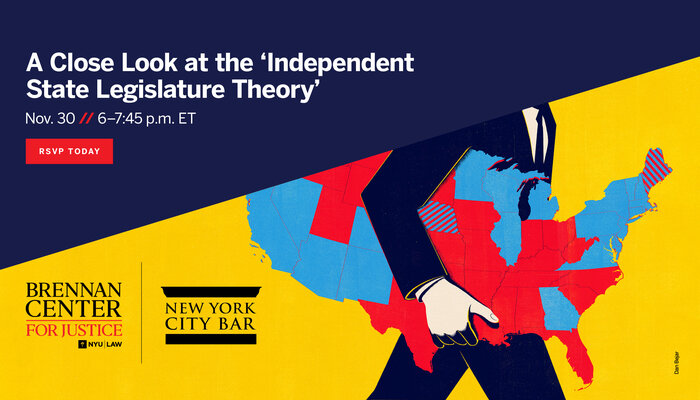Produced in partnership with the New York City Bar Association
This event is free for all non-lawyers and $15 for lawyers who are not members of the New York City Bar Association.
The so-called “independent state legislature theory” is front and center in Moore v. Harper, one of this Supreme Court term’s most watched cases. This radical theory holds that the Electors Clause and Elections Clause in the Constitution give state legislatures the authority to make decisions about federal elections without the oversight of state courts — and despite the existence of state constitutional provisions purporting to govern such elections.
First proposed in the aftermath of the 2000 election, the theory has gained prominence during litigation over the 2020 election. Adoption of this dangerous theory could impact, for example, states’ ability to ban political gerrymandering.
In this timely program, prominent scholars and practitioners will explore whether the independent state legislature theory has any valid constitutional underpinnings, the historical origins of the relevant constitutional clauses, and the challenges that a Supreme Court decision endorsing this theory would present for our democracy.
Speakers:
- Carter G. Phillips, Sidley Austin LLP, Counsel of Record for Amicus Curiae Conference of Chief Justices in Moore v. Harper
- Carolyn Shapiro, Professor of Law and Founder and Codirector, Institute on the Supreme Court of the United States, Chicago-Kent School of Law
- Thomas Wolf, Deputy Director, Brennan Center Democracy Program
- Moderator: Anil Kalhan, Professor of Law, Thomas R. Kline School of Law, Drexel University; Visiting Professor of Law, Yale Law School
- Welcome: Marcy L. Kahn, Chair, Rule of Law Task Force, New York City Bar; Associate Justice (Retired), New York Appellate Division, First Department




